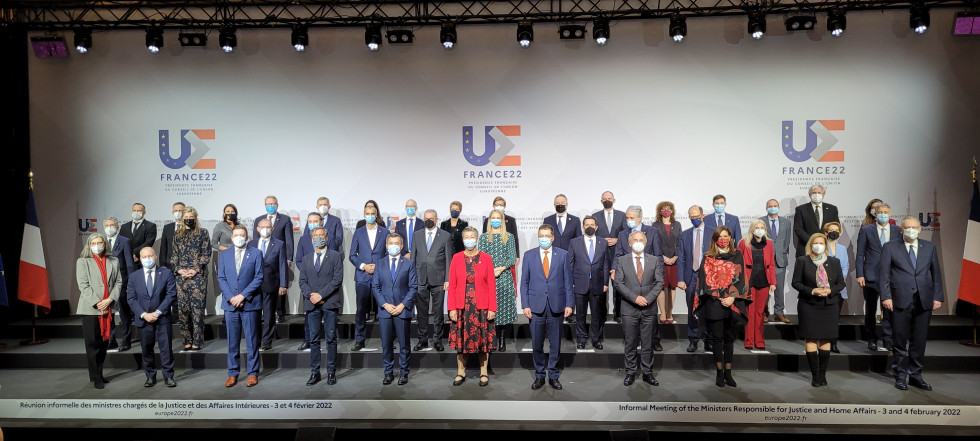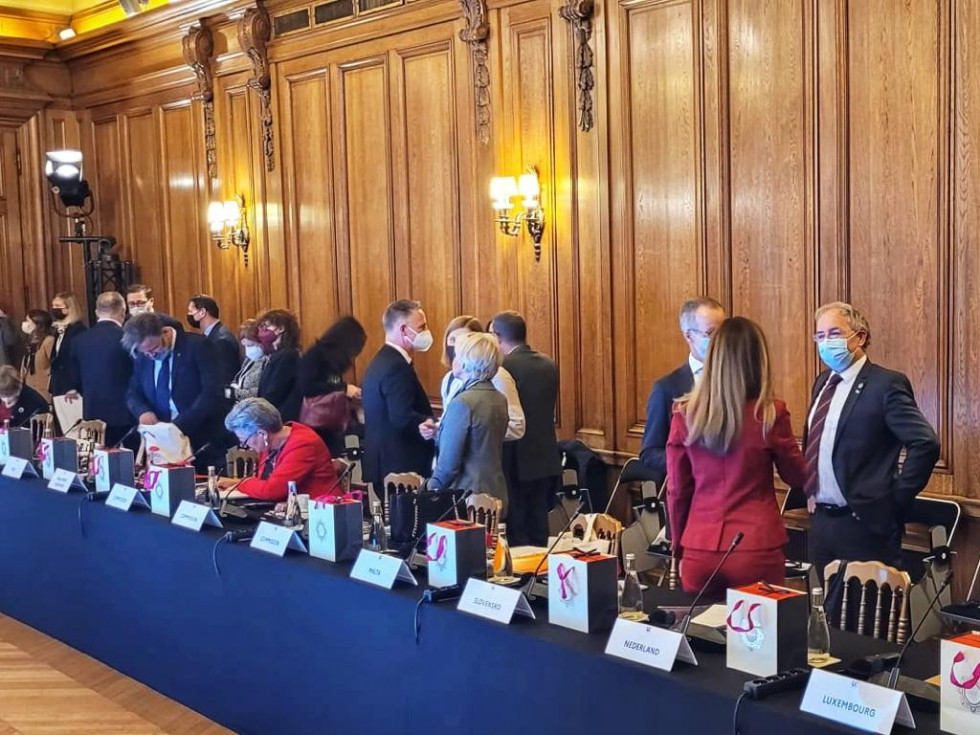EU home affairs ministers meet in Lille to discuss Schengen reform and migration policy
In the context of discussions on the reform of Schengen, the Presidency wished to focus on making the Schengen area more resilient and more secure. “Challenges such as migratory pressures, terrorist attacks and the COVID-19 pandemic have recently undermined the operation of the system and its integrity. Moreover, they have undermined the trust between member states,” Minister Hojs said. Slovenia supports the French Presidency proposal to create a “Schengen Council”. Concerning the proposed regulations, i.e. the proposals to reform the Schengen Evaluation Monitoring Mechanism and to overhaul the Schengen Borders Code, Slovenia advocates a stronger role for the Council of the EU as soon as possible. “All of this is necessary in order to allow us to raise discussions, to prepare political guidance and to take concrete decisions on the future of Schengen in a timely manner,” Hojs further clarified Slovenia’s position.
“For quite some time, Slovenia has pointed out the importance of preventive action and full compliance with the Schengen acquis”, the Minister said, adding that “we also need a better overview of the functioning of the entire Schengen area and the implementation of the acquis.” The Minister also expressed his satisfaction that the European Commission finally announced an annual report on the state of Schengen.

Group photo | Author Ministry of the Interior
The French Presidency also wishes to make gradual progress in the process of negotiation on the Pact on Migration and Asylum. »Slovenia has made important steps forward in the negotiations on the pact during its presidency, particularly in the area of the external dimension, return and the management of the EU’s external borders, and I am pleased to see that the French Presidency continues this way,” Hojs noted. The key outstanding issue is the balance between solidarity and responsibility, which is essential for a strong common migration and asylum policy. Slovenia therefore supports the endeavours of the French Presidency to respond to the needs of the frontline member states in a fair and equitable manner.
The Minister presented Slovenia’s views in support of a flexible form of solidarity with the widest possible range of measures. “This is something that the ministers already agreed upon in the past,” stressed the Minister, listing a number of solidarity measures such assistance in financial, operational and human resources provided by the EU, EU agencies and other member states. The Minister did not support the idea of compulsory financial support but – as an alternative to this proposal – suggested accepting any kind of contribution by a member state to help a recipient country to cope effectively with migratory pressures.
In the margins of the meeting, a cyber-attack simulation was also prepared, bringing the ministers closer to the operational work of law enforcement agencies facing and fighting this type of crime on a daily basis. According to those involved in the presentation, one of the most important findings is that the evidence for this type of crime is dispersed across different locations, countries and continents, and therefore legislation in this area must allow for faster and easier acquisition of such evidence.
Over lunch, the ministers discussed another important topic for the EU's internal security, the fight against terrorism and the prevention of radicalisation. They agreed that prevention and multi-agency cooperation between various stakeholders at EU level and in the member states – EU agencies, law enforcement agencies, schools, local communities, etc. – are crucial in addressing this type of threats.

At the meeting | Author Ministry of the Interior

